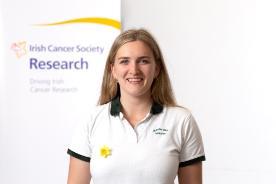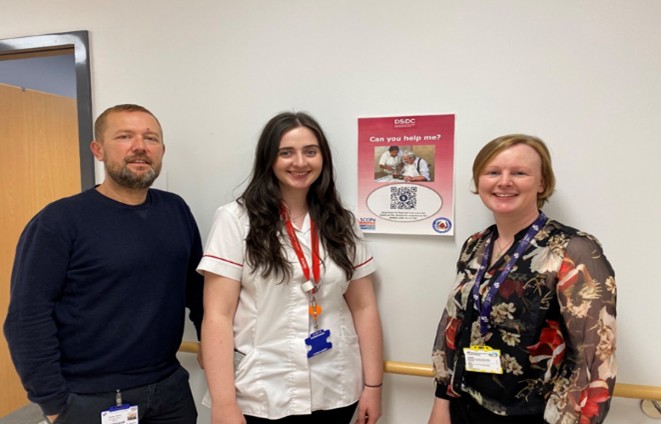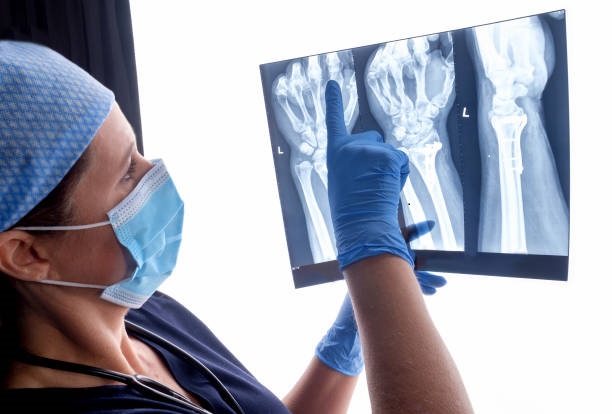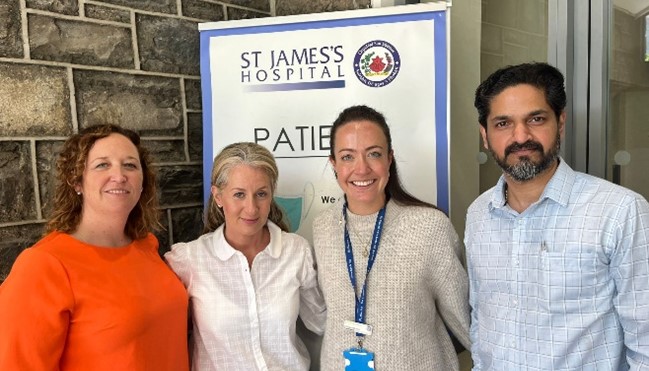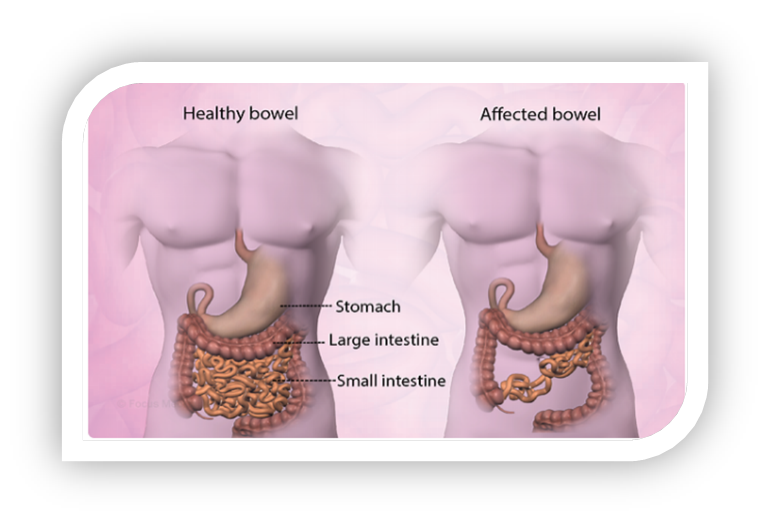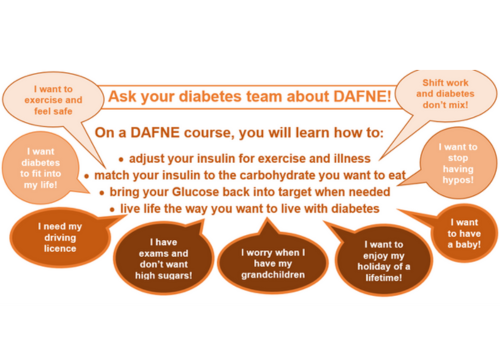1 November, 2023
“We were really anxious about navigating the Leaving Certificate and going back to school after a turbulent few years, so to have support like this, to know our options and to have guidance on things like fatigue and brain fog was such a relief.” (Mum of AYA)
Adolescent and Young Adult (AYA) patients living with and beyond cancer are a group that have unique needs and deserve special attention as highlighted in the Framework for the Support and Care of Adolescents and Young Adults with Cancer.
While there is marked variability internationally between the definitions of AYA, in Ireland the recognised age range for this cohort is 16-24 years. Globally, the number of newly diagnosed AYA cancers is increasing and so, too, is the number of AYAs living with and beyond cancer.
Physical and psychological sequelae experienced by AYAs during and after cancer treatment include fatigue, cognitive dysfunction, anxiety and depression. Return to education and employment is often cited as one of the main challenges for AYAs post treatment (Cameron et al., 2021; Elsbernd et al., 2018) and is compounded by late-effects of treatment including fatigue (van Deuren et al., 2020), anxiety and depression (Baker & Syrjala, 2018), as well as understanding by peers (Elsbernd et al, 2018).
In line with school absence and long-term side-effects of treatment, AYAs may underperform academically in comparison to peers, which can in turn predispose them to barriers in higher education, employment and financial difficulty in later life (Barrett et al., 2018).
Occupational therapy has been widely recommended in AYA cancer rehabilitation, including reintegration into education (Tanner et al, 2020), where unmet service needs in occupational therapy in AYAs with cancer is associated with worse health-related quality of life (Smith et al, 2013).
In 2022, St James’s Hospital was named as a National AYA Cancer Unit or ‘Spoke’ alongside Cork University Hospital and University Hospital Galway, linked with the main ‘Hub’ Children’s Health Ireland. While a full multidisciplinary team for AYA has yet to be established in St James’s Hospital, a pilot service in Occupational Therapy has been launched with promising education and employment outcomes to date.
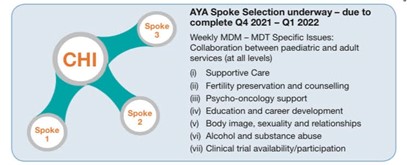
Figure 1: AYA 'Hub' Children's Health Ireland, and 'Spokes', including St. James's Hospital. Reference: NCCP, 2022
Occupational Therapy, St James’s Hospital
All AYAs referred to Occupational Therapy for education/employment support at St James’s Hospital will be assessed for;
- potential late-effects that may impact on daily life (e.g., fatigue, brain fog, neuropathy, deconditioning)
- reasonable accommodations (e.g., for certificate examinations or employment)
- eligibility for additional supports to support reintegration (e.g., Disability Access Route to Education (DARE), Reasonable Accommodations for Certificate Examinations (RACE), Home Tuition, Partial Capacity Benefit, etc.).
As AYAs can be based across Ireland, a flexible approach is offered to deliver occupational therapy to meet individual needs e.g., via telehealth. As each patient has unique needs, assessment and tailored intervention can vary widely. An example of interventions provided in 2023 to date include:
- Fatigue Management
- Cognitive Assessment and customised Rehabilitation/Self-Management
- Handwriting/Typing Assessment
- Upper Limb Programme
- Tailored Reasonable Accommodations
- Reports and advocacy for (i) RACE, (ii) DARE, (iii) HTMED1 form (Home Tuition), (iv) Partial Capacity Benefit).
- Seating/Ergonomics assessment
While the majority of AYAs are supported via the outpatient service, there have been cases where support is required at inpatient-level for education integration. For example, there have been several examples of supporting AYAs to complete their Leaving Certificate examinations or other continuous assessment, while continuing their inpatient cancer treatment at St James’s Hospital.
Some Interesting Service Findings
- To date, occupational therapy referrals for this cohort at St James’s Hospital has increased by 80% year to date (2022 vs 2023), and it is envisaged that the need for this service will continue to grow.
- 93% of AYAs referred to Occupational Therapy report cancer-related fatigue that impacts their daily routine, including performance in school, higher education, and employment.
- 86% of AYAs referred to Occupational Therapy report cognitive changes that impact on quality of life and ability to engage in daily activities.
- 100% of AYAs who have been referred to OT for educational and/or employment supports have been assessed for and provided with tailored accommodations.
